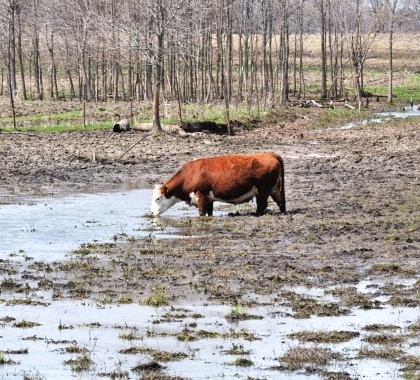The U.S. Supreme Court declined to review a landmark lower court ruling establishing Native Americans’ tribal groundwater rights, leaving in place a decision granting the federal government rights to groundwater underneath federal lands and Native American tribes rights to groundwater beneath federally recognized reservations.
The reservation of the Agua Caliente Band of Cahuilla Indians sits on 31,000 acres of land in southern California. The tribe shares the region’s groundwater with other municipalities and property owners, including nine cities, 400,000 people, and 66,000 acres of farmland.
Expands Federal Water Rights
In 2013, the tribe sued two local water districts to secure the right to groundwater beneath its land, under a century-old federal government doctrine previously applied only to surface water. The Coachella Valley Water District and the Desert Water Agency responded by arguing state law already allows the tribe to purchase all the water it wants.
The Ninth U.S. Circuit Court of Appeals sided with the tribe, with the three-judge panel ruling for the first time a 1908 U.S. Supreme Court decision that established federal lands, including Indian reservations, have a legal right to surface water, also applies to groundwater.
The Ninth Circuit decreed the creation of the reservation for the tribe in the 1870s “carried with it an implied right to use water from the Coachella Valley Aquifer.”
State Water Control Curtailed
The water districts appealed the decision to the U.S. Supreme Court, arguing the Ninth Circuit ruling would hamper state and local efforts to maintain groundwater supplies for all customers.
Ten states submitted an amicus brief to the Supreme Court in support of the water districts’ arguments, urging the court to take up the case. The states’ brief argued the Ninth Circuit’s opinion does away with state control over groundwater.
“If a federal reservation can assert absolute preemption over state groundwater allocation laws and regulations, a state’s effort to effectively manage those limited water resources will be thrown out of balance,” the brief stated.
Private Property Concerns
Landowners argued the Ninth Circuit’s decision places private property owners’ water rights at risk, raising Fifth Amendment concerns. The Pacific Legal Foundation (PLF) filed an amicus brief on behalf of private property owners and in support of the local water agencies.
PLF’s legal brief argues the Ninth Circuit’s ruling fails to consider “the effect … on the groundwater rights of non-federal water users. PLF is therefore concerned about the harmful impacts that the decision may have on the water rights of landowners throughout the western United States.”
PLF senior attorney Damien Schiff says the Ninth Circuit’s ruling could cause other property owners who share the groundwater source to lose their water rights, resulting in a regulatory taking.
“By declining to hear the case, the Supreme Court opened the door to the possibility groundwater rights could be unconstitutionally taken by federal agencies and tribes across the country,” Schiff said. “The court is saying that there exists this right, but it has not been quantified, and no one yet knows to what extent its assertion will hurt other water users.”
The case now goes back to the federal district court to determine the quantity and quality of groundwater to which the tribe has claim.
Kathy Hoekstra ([email protected]) writes from Saginaw, Michigan.





